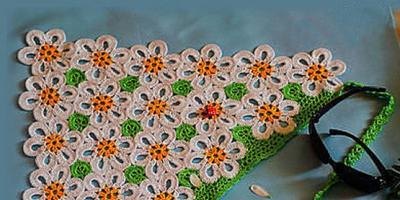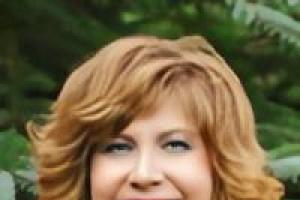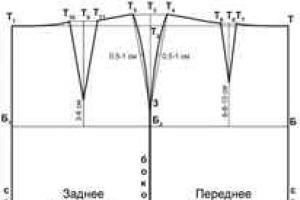In modern preschool institutions, not only educators, but also teachers of various specialties work with children. One of the specialists is a speech therapist. Parents often believe that a speech therapist only works with children who do not pronounce or pronounce individual sounds incorrectly. But this is only one aspect of speech therapy. The main goal of correctional work carried out by speech therapists is the development of the child’s speech as a whole, namely: the development of articulatory motor skills, the development of physical and speech hearing, the accumulation and activation of vocabulary, work on the grammatical structure of speech, training in word formation and inflection skills, the development of coherent speech, the formation of skills sound-letter analysis, and, of course, pronunciation correction.
Different children need speech therapy help for different reasons. It depends on the nature of the speech impairment. If a child of 5-6 years old incorrectly pronounces individual sounds, as a rule, [l] or [r], there is no special tragedy in this - now. But later... Will his parents be able to guarantee that such a deviation from the norm will not interfere with him in adolescence or older age? And relearning is many times more difficult. If a child pronounces some sounds incorrectly and, in addition, has impaired phonemic (speech) hearing, which does not allow him to clearly distinguish the sounds of his native language, this can lead to impaired reading (dyslexia) and writing (dysgraphia) at school. You can let everything take its course, ensuring the child has poor performance in the Russian language, stress, etc., or you can try going to a speech therapist with a preschooler, rather than have problems with the schoolchild later.
It is known that all functions of the central nervous system are best trained and educated during the period of their natural formation. If unfavorable conditions are created at this time, then the development of functions is delayed, and at a later age the lag is compensated with difficulty and not completely. For speech, such a “critical” period of development is the first three years of a child’s life: by this period, the anatomical maturation of the speech areas of the brain is basically completed, the child masters the main grammatical forms of his native language, and accumulates a large vocabulary. If in the first three years the baby’s speech was not given due attention, then in the future it will take a lot of effort to catch up. That is why systematic correctional classes are conducted in kindergartens with children starting from 3-4 years of age.
There are two types of speech therapy classes: frontal (with a group of children) and individual. The optimal number of children in a frontal lesson is 5-6 people, children of the same age and with the same type of impairment, since speech therapy work is based on the impairment and age of the child.
There are three main types of speech disorders in preschool children: violation of the pronunciation of individual sounds, or dyslalia, - light look, FFN— phonetic-phonemic disorders(pronunciation and speech hearing are impaired), ONR— general underdevelopment of speech(the entire speech system is disrupted: pronunciation, phonemic hearing, syllable structure, grammar, coherent speech). General underdevelopment of speech has four levels - from silence and speech at the level of a one-year-old child to the manifestation of elements of OHP (impaired phonemic hearing and syllabic structure of speech).
For children with dyslalia, individual lessons with a speech therapist 1-2 times a week on the development of articulatory motor skills, production and automation of sounds, and homework are sufficient. Classes can last from 3 to 9 months.
Children with FFN can attend individual classes 2-3 times a week or combine frontal classes with individual ones. Classes can last 6-9 months.
For children with ODD, individual lessons alone are not enough; a combination of frontal and individual lessons 3-4 times a week is more effective. In individual lessons, work is carried out mainly on correcting sound pronunciation, and also positions are practiced that the child cannot individually achieve in frontal lessons. The main objectives of frontal classes are, firstly, the accumulation of vocabulary and the development of the lexical and grammatical structure of speech; secondly, the development of phonemic hearing and the syllabic structure of the word; thirdly, the prevention of dysgraphia and dyslexia and, fourthly, the development of coherent speech. Along the way, the speech therapist develops the emotional-volitional sphere and all mental processes. Duration of classes is 1-2 years.
The correct development of a child’s speech largely depends on the attention and care of the family. Dyslalia, FFN or OHP - all these disorders can be completely overcome or a significant improvement in speech can be achieved, but for this you need to help the child persistently, with love and faith in success!

The role of a teacher-speech therapist in kindergarten
Kindergarten is the first link in the public education system. To become highly educated, a person must master all the riches of his native language. Therefore, one of the most important tasks of a kindergarten is the formation of correct oral speech of children based on their mastery of the literary language of their people.
The development of speech must be closely linked with the development of the child’s thinking. Mastering a language and its grammatical structure gives children the opportunity to freely reason, ask questions, draw conclusions, and reflect various connections between objects and phenomena.
The most important prerequisite for solving speech problems in kindergarten is the correct organization of the environment in which children would have the desire to speak, name their surroundings, and engage in verbal communication.
Most parents, some earlier and some later, think about how correctly their children babble, and whether there is a deviation in the fact that their child is laconic, or pronounces sounds incorrectly, and perhaps changes letters in words. For the first time, your child needs to come to the children's clinic for an appointment with a speech therapist at the age of 2 years. And, despite the absence of any pathologies in speech development, the speech therapist in the kindergarten where you will take your child will help the development of competent and beautiful speech.
One-year-old babies begin to develop their speech apparatus, at that moment they speak their first coherent words and try to pronounce sentences. It is not always easy for parents to understand what words and sounds their child is trying to pronounce, whether he is doing it correctly, and how correctly his speech is being formed. Experts advise taking your child to a speech therapist for the first time at two years of age. You can do this in any children's clinic, or go to a private doctor whose specialization is based on working with children.
Speech disturbances may then appear when the child reaches four to five years of age. At this time, children attend kindergarten, where they constantly talk to each other, adopting the conversational manners of their elders. All sorts of factors can influence errors in pronunciation, starting from the formation of an incorrect bite in a child and ending with his internal state and his elementary “I don’t want and won’t” speak sounds legibly. This is actually why a speech therapist should work in kindergarten.
A speech therapist in kindergarten should monitor the children and identify their speech defects. It is quite easy for a speech therapist in a preschool institution to do this. A speech therapist in a kindergarten monitors children, their habits, studies their behavior patterns, conducts personal conversations, and then sums up the correct development of the child’s speech.
But is there a speech therapist everywhere in kindergarten and are his duties included in teaching children who have no identified deviations?
The answer is clear. Every kindergarten should have a speech therapist. Firstly, he conducts separate classes with children who have been diagnosed with speech pathology (general speech underdevelopment, dyslalia, dysarthria), and the plans for the work of this specialist There should be group developmental lessons:
lexical and grammatical aspects of speech,
phonemic representation,
fine and articulatory motor skills,
movement coordination,
attention and memory.
When listing the tasks that a speech therapist should perform in kindergarten, the main ones can be noted: to identify children whose speech development is impaired, to correct these disorders and to prevent the occurrence of such disorders.
Svetlana Gogoreva
Speech therapist in kindergarten
Some parents, fortunately, do not even know what they are for speech therapist in kindergarten. And parents of children with speech disorders had to come into close contact with science speech therapy and meet experts in this field.
Speech therapy is the science of speech disorders, their overcoming and prevention through special correctional education and upbringing, which is one of the sections of special pedagogy - defectology, and is divided into preschool, school and adult. This article will mostly focus on preschool speech therapy. Speech therapy combining medicine, psychology and pedagogy, and without knowledge of the basics of these specialties, can be useless, and sometimes "dangerous".Teacher- speech therapist for children Sada is a general specialist who works with all types of speech disorders in preschool children.
What functions does it perform? speech therapist in kindergarten? Speech therapist in kindergarten conducts a complete and detailed examination of each child for the characteristics of his speech development. Most often this happens at the beginning of the school year, special examination protocols are used, the child’s medical record is studied, parents are interviewed, if necessary speech therapist can refer the child for a consultation with an ENT doctor, an ophthalmologist, a neurologist, an audiologist, or a defectologist. Ideally, a conclusion about a child’s speech development is made collegiately: speech therapist, psychologist and neurologist. And after that speech therapist, taking into account the characteristics of the child’s psyche and the severity of the speech defect, selects a speech correction program.
The speech correction program is carried out in stages, and in most cases, includes myself:
Formation of correct speech breathing,
Development of phonetic perception,
Normalization of speech motor skills,
Correction of sound pronunciation disorders,
Overcoming violations and developing the lexical and grammatical aspects of speech,
Development of connected speech.
If a child successfully masters and completes a speech correction program, then in the future speech therapist teaches him the elements of literacy, prepares him for studying at a comprehensive school. The duration of the correction program depends on the severity of the speech disorder, the psychological and neurological status of the child, and on professionalism speech therapist. Each lesson conducted speech therapist in kindergarten, is a whole complex of games and exercises, as well as various types of gymnastics and massages for the tongue of children. In class speech therapist uses toys, pictures, musical instruments and a lot of various teaching aids. And the most important attribute of the classes is the mirror, in front of which most tasks are performed. Have speech therapist and speech therapy instruments - probes for massage and sound production. Speech therapist in kindergarten regularly conducts not only frontal (classes with the whole group), but also subgroup and individual classes.
What speech disorders does it correct? speech therapist in kindergarten?
1. Oral impairment speeches:
Dislalia (tongue-tied)– disturbance of sound pronunciation with normal hearing and preserved innervation of the speech apparatus;
Dysarthria is a violation of the pronunciation aspect of speech caused by insufficient innervation of the speech apparatus;
Stuttering is a violation of the tempo-rhythmic organization of speech, caused by the convulsive state of the muscles of the speech apparatus;
Bradylalia is a pathologically slow rate of speech;
Tahilalia - pathologically accelerated rate of speech;
Alalia is the absence or underdevelopment of speech due to organic damage to the speech areas of the cerebral cortex in the prenatal or early period of a child’s development.
In addition to problems with oral speech, children suffer from a written language disorder, which is corrected at school.
2. Violation of funds communication:
FND – phonetic speech underdevelopment. This is a violation of sound pronunciation with normal physical and phonemic hearing and the normal structure of the speech apparatus. There may be a disorder of a single sound or several sounds at the same time. Such disorders may manifest:
In the absence (pass) sound – aketa instead of rocket
In distortions - throat pronunciation of the sound r, buccal pronunciation - w, etc.
Incorrect pronunciation can be observed in relation to any consonant sound, but those sounds that are simple in the method of articulation and do not require additional movements of the tongue (m, n, p, t, most often) are disturbed less often are violated:
Whistling sounds - S, Z (and their soft pairs, C;
Hissing sounds - Sh, Zh, Ch, Shch;
Sonorant (lingual)– L, R (and their soft pairs);
Rear lingual – K, G, X (and their soft pairs).
Most often children with FND speech therapist in kindergarten takes classes for six months.
FFND - phonetic-phonemic speech underdevelopment. This is a violation of the processes of formation of the pronunciation system (native) language in children with various speech disorders due to defects in the perception and pronunciation of sounds. With intact physical hearing, children cannot distinguish or confuse similar sounds (whistling and hissing; sonorant; soft and hard; voiced and voiceless). For example, when asked to repeat a series of different sounds or syllables, the child repeats all sounds or syllables as if they were the same (pa-pa-pa instead of pa-ba-pa). And when a speech therapist in kindergarten asks what sounds does he hear? The kid replies that the sounds are the same. It is not physical, but phonemic hearing that is responsible for the process of distinguishing close sounds. (hearing for phonemes). And, as a result of a number of reasons, it turns out to be disturbed or unformed.
A phoneme is the minimum unit of sound structure of a language. Each phoneme in speech is represented by its own variants (allophones). A phoneme has a basic variant - a sound in a strong positions: for vowels - this is the position under stress, for consonants - the position before the vowel or sonorant.
In the phonetic-phonemic underdevelopment of children, several states:
Difficulties in analyzing sounds that are disturbed in pronunciation;
With formed articulation, non-discrimination of sounds belonging to different phonetic groups;
Inability to determine the presence and sequence of sounds in a word.
The main manifestations characterizing FFNR:
1. Undifferentiated pronunciation of pairs or groups of sounds, i.e. the same sound can serve as a substitute for two or more sounds for a child. For example, instead of sounds "With", "h", "sh" child makes a sound "s": "sumka" instead of "bag", "boob" instead of "cup", "syapka" instead of "a cap".
2. Replacement of some sounds with others that have simpler articulation, i.e. complex sounds are replaced by simple ones. For example, a group of hissing sounds can be replaced by whistling sapka instead of hat, "R" is replaced by "l" Laketa instead of rocket.
3. Mixing sounds, i.e. unstable use the whole a number of sounds in different words. A child can use sounds correctly in some words, but in others replace them with similar ones in articulation or acoustic characteristics. For example, a child can pronounce sounds correctly "R", "l" And "With" isolated (i.e. one sound, not in a syllable or word, but in speech utterances instead "red cow" speaks "licking feces".
In addition to the listed features of pronunciation and phonemic perception in children with FFDD observed: general blurred speech, unclear diction, some delay in the formation of vocabulary and grammatical structure of speech (errors in case endings, use prepositions, agreement of adjectives and numerals with nouns).
Children with this speech disorder speech therapist in kindergarten must take remedial classes throughout the year.
OSD – general speech underdevelopment. As the name implies, with this type of disorder, all components of the speech system, that is, the sound side, suffer (phonetics)– violation of sound pronunciation and phonemic perception; semantic side (vocabularies, grammars)– poor vocabulary, few generalizations, synonyms, antonyms, etc., errors in inflection and word formation, difficulties in coordinating words; poor development of coherent speech - the ability to tell and retell.
It is typical for children with OHP:
Later start speeches: the first words appear by 3-4 years, phrasal speech of two words by 5 years;
Speech is full of agrammatisms (irregular forms and variants of words) and not sufficiently phonetically designed;
Expressive speech lags behind impressive speech, that is, the child, while understanding the speech addressed to him, cannot correctly voice his thoughts;
The speech of children with ODD is difficult to understand.
Most often, when talking about ODD, they mean speech disorders in children with normal intelligence and hearing. The fact is that with hearing or intellectual impairments, speech underdevelopment, of course, occurs in most cases, but in this case, OHP already has the character of a secondary defect.
The formation of correct speech development is a complex process - the joint work of a doctor - a neurologist, speech therapist, psychologist, educator, music worker, physical education specialist. This work must be coordinated and comprehensive. By actively influencing the child with specific professional means, teachers build their work on the basis of general pedagogical principles. At the same time, by identifying objectively existing points of contact between various pedagogical areas, each teacher does not carry out his work in isolation, but complementing and deepening the influence of others. Therefore, taking into account the individual characteristics of each child with speech impairments, preschool specialists outline a unified set of joint correctional and pedagogical work aimed at the formation and development of the motor, intellectual, speech and social-emotional spheres of personality development of a preschool child.
And at the end of my work, I would like to say that parents play an equally important role in the speech development of children. Therefore, in addition to activities with the child speech therapist in kindergarten conducts consultations with parents, during which he explains to the parents the child’s speech impediment and teaches the necessary techniques and exercises for homework.
Thank you for your attention!
A speech therapist is a correctional teacher who deals with speech disorders in children and adults. He not only “puts” sounds. This helps children develop attention, visual and auditory perception. The specialist prepares children with various disabilities and speech disorders for a full-fledged work and social life.
Why do children have speech development disorders?
In order for a little person to speak, two main things are needed: society and objective activity. There can be many reasons why a child does not speak or speaks incorrectly: from mental retardation, autism to functional immaturity.
Today, more than 40% of children have some kind of speech problem. This highest function of the child’s general psychophysiological development is improved in several stages according to temporary norms.
There are many books for teaching parents, preparing them for birth, upbringing, and proper care of children. The main thing is to be very attentive to your kids during this period. You need to talk to the child to the extent that he needs for full development. The baby must be taught to listen to speech addressed to him from the very first day of life.
It is very important to detect certain violations as early as possible. For this purpose, there are preventive examinations with doctors. Usually, every children's clinic also has a speech therapist. This is a specialist who will help solve any problems related to the baby’s speech development.
Work of a specialist in a kindergarten
A speech therapist in a preschool educational institution is a teacher whose task is to eliminate certain children. The main goal of the teacher’s activity is to organize the correct education of children with disabilities. At the same time, each child needs an individual approach. There are a huge number of techniques that allow you to improve children's speech. The speech therapist teacher must decide how to work with a particular student.
Identification of the level of speech formation in preschool children
Speech is considered expressive if it is characterized by restraint, accuracy (correct depiction of the surrounding reality), logic, clarity, as well as correctness and purity. One of the principles of preschool education reflected in the Federal State Educational Standard is the implementation of the program in forms acceptable for children of this age group. Learning should take place, first of all, in the form of games, cognitive and research activities, and creative activity.

The set of tasks in all includes according to the Federal State Educational Standard: cognitive development, speech development, artistic and physical development.
All work on speech formation in preschool children takes place in three stages:
- Preparatory.
- Basic.
- Final.
Children are given exercises to develop diction, speech breathing, and motor skills. Poems and sketches are being learned. Singing is also of great importance. Each speech therapist also applies his own proven techniques. Children with minor speech impairments are prepared for school through special programs in kindergarten. In a regular secondary educational institution, a speech therapist can conduct correctional classes to correct diction.
Severe speech impairment
A special specialist works with children who have serious speech development disorders. Who is a speech pathologist? It is the activity of this doctor that is aimed at solving the problems that have arisen in the baby. Severe speech disorders include:
- alalia;
- aphasia;
- some severe forms of stuttering.
Children with serious disabilities are cared for by specialists in medical institutions at their place of residence.

Let's consider one of the most complex diseases. Alalia is a lesion of the central nervous system during fetal development. Most often, a neoplasm is found in the cerebral cortex, but not always. In ontogenesis, at the first stage, the child begins to buzz. This is a biological phenomenon characterized by the merging of sounds.
Babbling is the next stage in the formation of speech. Buzzing is common to all newborns, even if the child has no hearing or vision. Babbling is observed only if the baby has a social and communicative environment. Nationality can be determined by babbling; it has the intonation, rhythm and sounds inherent in a given language. The babbling chains are uniform and very long. As the child develops, babbling develops into understandable speech. Consonants appear, prototypes of words, then phrases.
If the baby does not make sounds for several months, you should consult a doctor. First of all, a speech therapist examines the baby. It is necessary! After all, this is the only way to identify a serious illness. The absence of babbling and humming may indicate the development of alalia.
How should speech develop correctly?
By the age of one year, a child should have phrases in his speech, and by two years, sentences. By the age of three, most children are already able to clearly express their thoughts and desires. If at this age the baby is silent, there is no need to panic. A speech therapist can determine what the problem is. This may just be a developmental feature of a particular person. However, the problem should not be left unattended.

A delay in speech will certainly be observed if the baby experiences a lack of communication. This problem is often observed in children who are brought up in a country. An important factor is also the psychological situation. Children whose parents are going through divorce proceedings often speak poorly. In any case, only a speech therapist can identify the cause of developmental deviations. Who else will do this if not an experienced specialist?
What does a speech therapist do at school?
As a rule, all the children who come to study in the first grade of a general education institution can already speak quite well. However, some babies still have some problems. Children may not be able to pronounce certain sounds and may “swallow” the endings of words. Such children subsequently develop problems with reading and writing and develop psychological complexes. By the time their children reach school age, parents already know who a speech therapist is and what he does in an educational institution.

The main tasks of a school teacher are the correction of reading and writing defects. Additionally, the following actions are performed:
- pronunciation correction;
- speech hearing correction;
- learning word formation skills;
- development of grammatical speech.
The development of psychological processes is also of great importance. This includes attention, memory, thinking. The child must not only speak, but also think correctly. A school speech therapist can also influence the formation of basic learning skills. This is, first of all, the ability to listen carefully to the teacher, correctly evaluate the result of one’s own work, and solve assigned problems.
Aquatherapy in speech therapy
What does a speech therapist do in a preschool educational institution or educational institution? The specialist promotes the correct development of children’s speech. For this, both time-tested and new techniques can be used. A number of studies have been conducted that have shown that water has a positive effect on the development of speech and motor skills in children. Therefore, today aquatherapy is widely used in speech therapy. In their work, specialists take into account the age and psychological characteristics of children. Speech therapists do not forget about basic hygiene rules.

Playing with water contributes to the development of sound perception and increases vitality. Thus, kids not only learn to speak correctly, but also strengthen their immunity. In kindergartens, group classes are most often held. In clinics, speech therapists work with young patients on an individual basis.
Children really like playing with water. The most popular activities in children's institutions are:
- “Warm? Cold?";
- “Squeeze the sponge”;
- “Recognize the letter by touch”;
- "Move the crab."
Classes are also conducted using a special plastic container. In most cases, water at room temperature is used.
Exercises at home
If a child has speech problems, you cannot do without an experienced specialist. Only a qualified doctor will be able to identify the causes of the disease and help eliminate them. However, the work of parents at home is of great importance. The main cure is simple human communication. You need to talk to your child about everything, comment on all actions. In addition, the baby must communicate closely with his peers. Don't neglect your daily walks on the playground.

Excellent for children's speech development. At home, you and your baby can sort out buckwheat and make appliqués using beads and seed beads. Drawing is another activity whose benefits are difficult to overestimate. Children who love to draw develop well in all respects.
Summarize
If you notice any problems in your child’s speech development, you should immediately contact a speech therapist. The earlier the disease can be identified, the greater the chances of a successful outcome. A qualified speech pathologist will be able to find an approach to any child. And parents, in turn, should not neglect homework.
For many decades in our country, there have been separative trends in the education and upbringing of children with developmental disabilities, including preschoolers with speech developmental disabilities. Groups and kindergartens were opened for children with various speech disorders (some of them are designed for round-the-clock attendance).
Recently, more and more children with speech impairments do not attend specialized groups or preschool educational institutions, remaining in general education groups together with peers who do not have speech impairments. There are several reasons for this situation:
Objective reasons:
- limited number of places in specialized groups and preschool educational institutions,
- the distance of specialized preschool educational institutions from the child’s place of residence,
- an enterprise that has “its own” preschool educational institutions does not compensate for the maintenance of a child in “other people’s” kindergartens.
Subjective reasons:
- parents’ reluctance to transfer their child to another preschool or group, to part with their favorite teachers and peers,
- parents’ fear of a stressful situation for their child, which inevitably arises when changing the children’s team.
Let us dwell on the features of the work of a speech therapist at a speech center in a preschool educational institution.
The first feature is the speech therapist's control over the speech development of all children in preschool educational institutions from the moment of admission to the preschool educational institution until graduation from school, which leads to the timely detection of speech disorders and their effective correction, taking into account sensitive periods.
When children enter the nursery group, the speech therapist gets acquainted with the medical documentation for each child, paying special attention to the presence of unfavorable factors that can lead to speech disorders, and identifies children at risk. The speech therapist conducts systematic observation of these children, advises educators and parents on the development of the children’s psychological basis for speech and speech itself. If necessary, the speech therapist refers such children to various specialists (audiologist, speech pathologist, typhoidologist, psychiatrist, neurologist, otolaryngologist, orthodontist, etc.)
A separate group consists of children in the nursery group who have disorders of their analytical systems and “non-speaking” children. With such children, the speech therapist begins classes on the development and correction of the psychological basis of speech, on speech development, and gives detailed recommendations to educators and parents.
If a child enters a preschool educational institution at the age of 3 years, then soon after the child begins attending the preschool educational institution, a speech therapist examines his speech, and, if necessary, develops an individual correction route and gives recommendations to parents and educators.
At the age of 4–5 years, all children attending preschool educational institutions are examined by a speech therapist, identifies existing speech disorders, develops and implements an individual correction route.
Other feature – admission of children to the speech therapy center and their graduation takes place throughout the entire school year, so it is not possible for us to allocate clearly established periods for examining children’s speech (as when selecting children for a speech therapy group).
Third feature – all children with speech impairments attend regular groups and learn a general developmental program. Additionally, in the first half of the day, all of them study with a speech therapist (the frequency of classes depends on the specifics of the speech disorder), and in the second half of the day, a teacher works with them on the instructions of the speech therapist.








